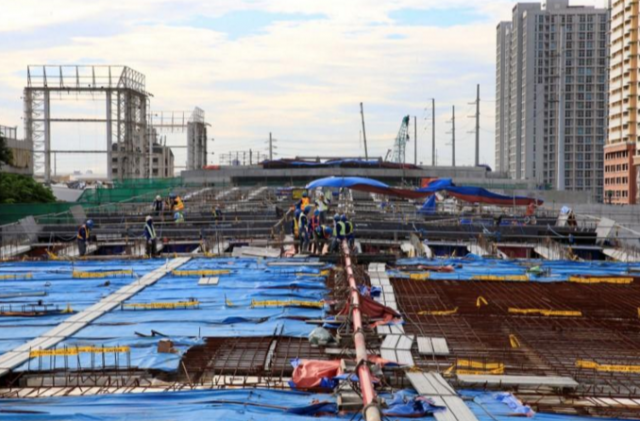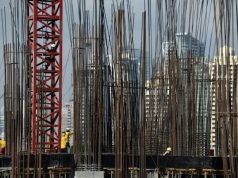MANILA – Former Trade Secretary Adrian Cristobal Jr. said the country needs an integrated steel mill to support other local industries, particularly shipbuilding and manufacturing of automotive vehicles.
Cristobal, who is now the president for Steel Asia Manufacturing Corp., told reporters Tuesday that an integrated steel facility in the country has been a dream of the Department of Trade and Industry (DTI) and various industries in the past decades.
“We only produce the rebar, and the rest, none. And you see towards the end downstream, we are the third or fourth largest shipbuilder in the world but none of that steel products that goes that comes in here,” said Cristobal.
“If you look at the auto industry, again, we have been preparing to be another automobile hub with the CARS (Comprehensive Automotive Resurgence Strategy) Program, but we don’t produce the steel needed,” he added.
Steel Asia Chairman and Chief Executive Officer Benjamin Yao announced Tuesday that the company is investing USD500 million or around PHP25 billion for three integrated steel mills in Tarlac, Cebu, and Batangas. (Steel Asia investing P25-B for 3 integrated steel mills: http://www.pna.gov.ph/articles/1028502)
The new facilities will manufacture sections and wire rods which are not yet produced here.
Cristobal said the company eyes to supply the demand for sections and wire rods of the downstream steel industry.
The country only has reinforcement steel (rebar) production, with Steel Asia as the largest manufacturer in the Philippines and in Southeast Asia.
But the country has no upstream steel industry, which involves scrap recycling for billets, bloom and slab – the raw materials for midstream industry products rebar, angles, sections, wire rod, hot rolled coil, and plates.
These midstream products are used for the manufacturing of products in downstream industry like cables, mesh, tire cord, tools, machinery parts, welding rod, roofing, defense equipment, fastener, spring, tools and die, cars body, bearings and chains, tin plate, appliances, industrial steel structures, wire, pipe, shipbuilding, and other everyday items, among others.
Currently, Steel Asia has facilities in Bulacan, Batangas, Cebu, Davao, and Misamis Oriental.
“So, what we see now is the opportunity — the market is there, the financing is there. The growth, we believe, is sustainable over the next seven years, that we have this very rare and unique opportunity now to really build up an integrated steel manufacture. A dream of two generations,” Cristobal said.
“Now you see there are six mills where we are in five locations, and the expansion is going to another regions. So the strategy is to go to our archipelago as our growth strategy,” he said.
Cristobal noted that 80 percent of Steel Asia workers are from the community where the manufacturing plants are present.
STEEL ASIA EYES IPO
Steel Asia plans to enter the local bourse in one to two years, its chairman and chief executive officer Benjamin Yao told reporters earlier.
Yao said the management is seriously looking at the company’s public listing within the period.
“Down the road, yes,” he answered when asked of the firm’s plan to hold an initial public offering (IPO). “We’re serious (with the plan). We behave like a public company anyway.”
Steel Asia is embarking on a six-year expansion plan worth PHP80 billion, with the first phase of putting up three integrated steel mills in Tarlac, Batangas, and Cebu.
Phase 1 of the expansion plan involves a USD500-million investment or about PHP25 billion to manufacture steel products that are not yet produced locally, like sections and wire rods.
Yao said the company sees the opportunity to produce these products in the domestic market with the expected robust demand for steel products due to the infrastructure program of the government and construction projects of the private sector.
However, even with or without the planned IPO, Yao said the company has the capability to fund its PHP80-billion expansion program.





